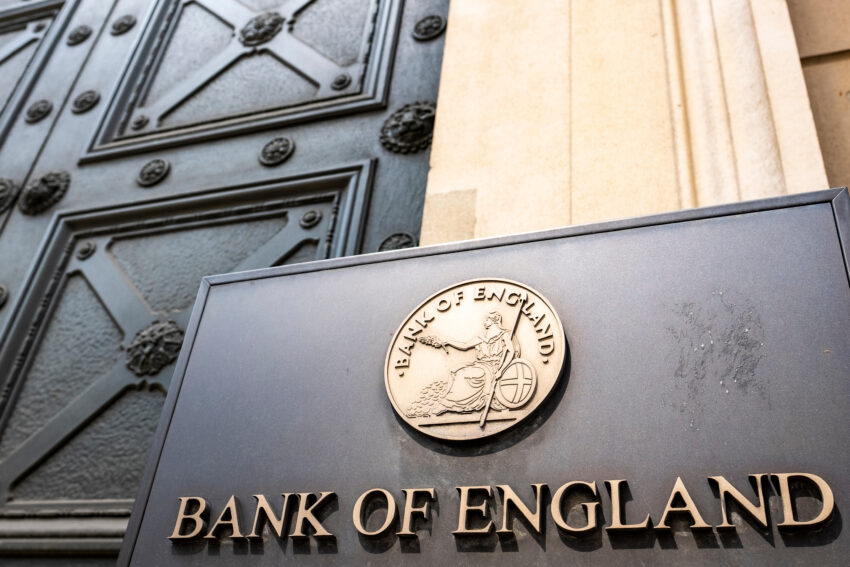Bank of England “navigating treacherous waters” over rate decision
 Bank of England Faces Tough Decision on Interest Rate Cuts as Budget Adds Inflation Concerns
Bank of England Faces Tough Decision on Interest Rate Cuts as Budget Adds Inflation Concerns
With the Bank of England poised to announce its next interest rate decision, experts warn that policymakers are "navigating treacherous waters" due to new economic uncertainties introduced by the recent Budget and inflation forecast adjustments by the Office for Budget Responsibility (OBR). While many expect the Bank to cut rates by 0.25%, a mix of economic factors, including the UK government’s £40 billion tax-raising plan, has cast doubt on the timing and scale of any potential rate cuts.
Gabriel McKeown, Head of Macroeconomics at Sad Rabbit Investments, notes that, initially, the drop in inflation below target had paved the way for rate cuts. However, he explains that the Chancellor’s aggressive tax plan, paired with the OBR’s upward adjustment of inflation forecasts, has shifted expectations toward a slower, more cautious approach. “There’s a consensus for a rate cut in November,” he said, “but the Bank will likely be more conservative in December, especially as global easing puts additional pressure on their policy decisions.” Rising energy prices and geopolitical tensions in the Middle East add complexity, suggesting the Bank must tread carefully.
Echoing McKeown’s concerns, Graham Cox, director at Bridging Hub, warns against a “wait-and-see” approach, urging the Bank to act decisively. “The UK economy is barely growing, and though the cost of living crisis may technically be easing, many people are still struggling,” he argues. “The Bank needs to cut now.”
Meanwhile, Jack Tutton, director at SJ Mortgages, supports the idea of a rate cut, viewing it as a necessary move to restore market confidence after the Budget’s mixed reception. He believes the Bank’s decision to follow through on anticipated cuts would reinforce its support for economic stability.Some experts, however, caution that the Bank should not act too hastily. Anita Wright, an independent financial adviser at Bolton James, points out that the Bank has faced criticism in the past for lagging behind in adjusting rates. “They may hesitate to delay a cut now to avoid criticism, particularly as inflation has dropped below the 2% target,” she says. However, Wright notes that inflation may rise again due to factors like the Budget’s influence, public sector wage hikes, and other economic drivers.Stephen Perkins, managing director at Yellow Brick Mortgages, views the economy as “crying out” for a base rate reduction, though he acknowledges the added inflationary pressures from rising gilt yields and wage costs post-Budget. He hopes the Bank will focus on immediate needs rather than potential future risks, stating, “Hopefully, Threadneedle Street can focus on the here and now and cross that bridge when it comes.”Elliott Culley, director at Switch Mortgage Finance, remarks that the Bank’s positive signals before the Budget had pointed to further rate cuts this year. But with the OBR’s suggestion that the Budget could increase inflation, Culley warns that the Bank may lean toward a cautious stance. He believes a rate cut would signal confidence and potentially stimulate the economy.Tony Redondo, founder of Cosmos Currency Exchange, acknowledges that while a rate cut could help bolster economic growth, inflation concerns tied to the government’s Budget cannot be ignored. With inflation recently dropping to 1.7%—the lowest since April 2021—he notes that the decision will require careful balancing between supporting growth and controlling inflation. “The Bank must weigh the benefits of a rate cut against the risk of rising inflation expectations,” he says, as the decision could have a significant impact on the UK’s economic path.
As the Bank of England prepares for its upcoming announcement, the focus remains on how it will navigate the complex priorities of growth, inflation control, and market stability in an increasingly challenging economic landscape.







